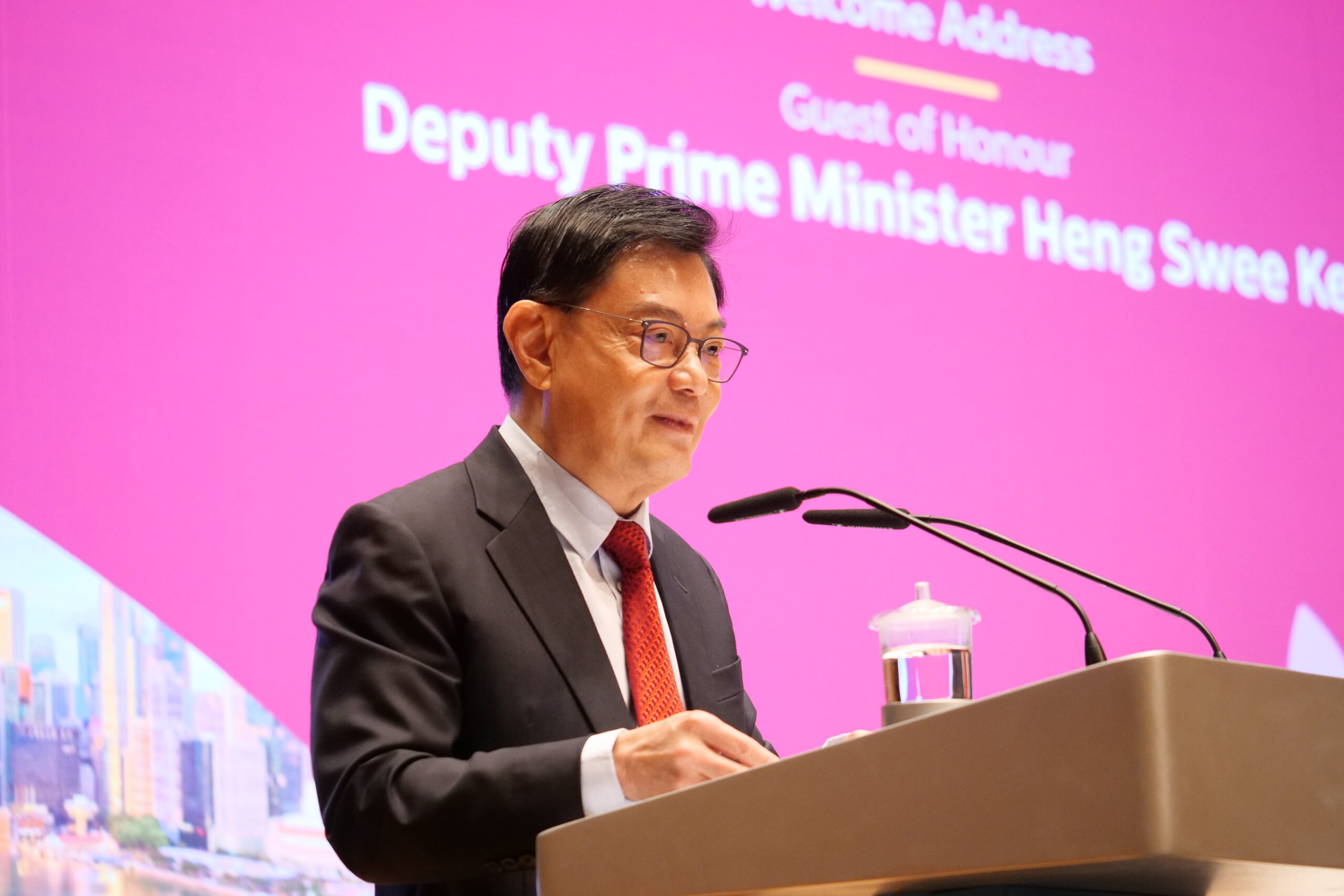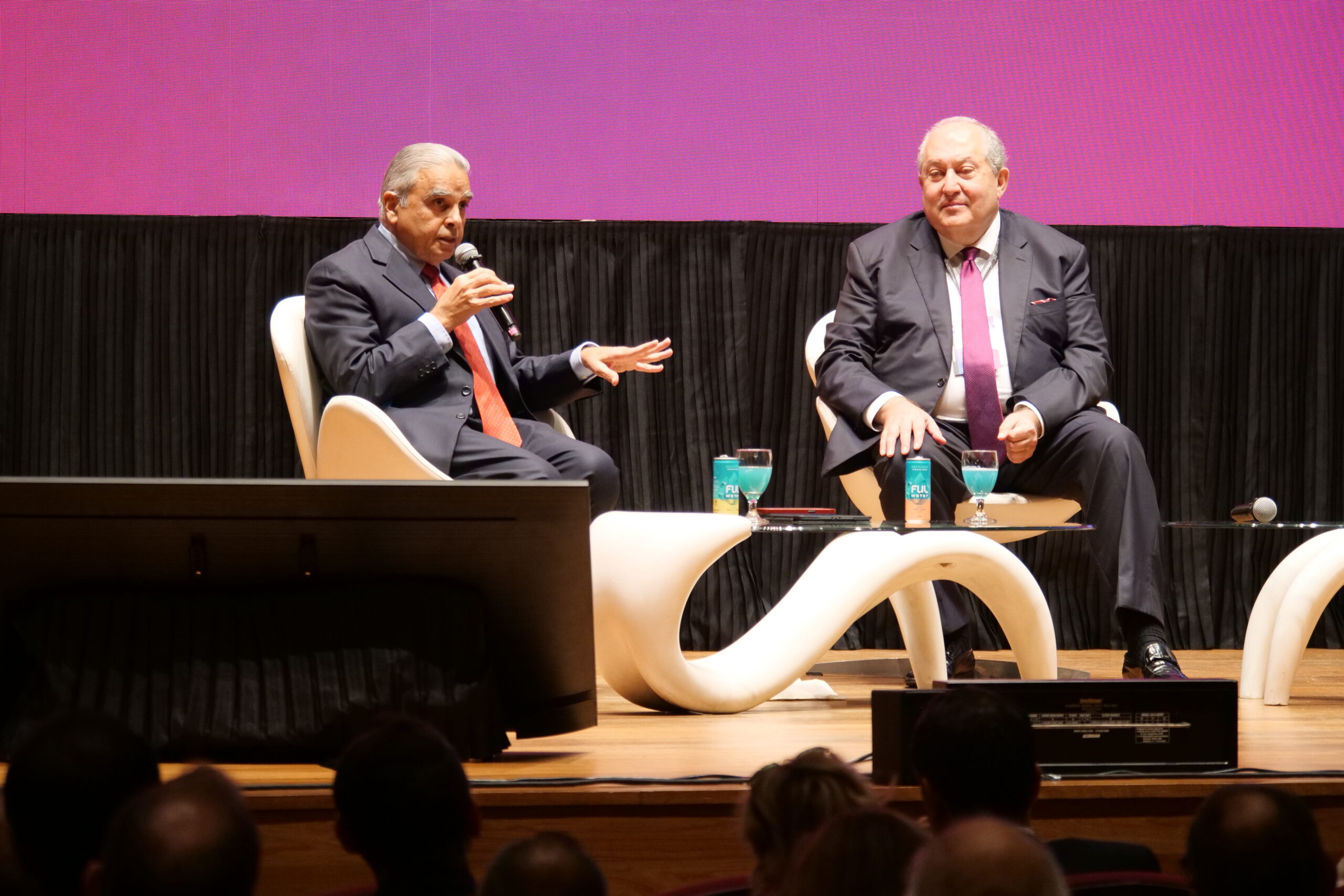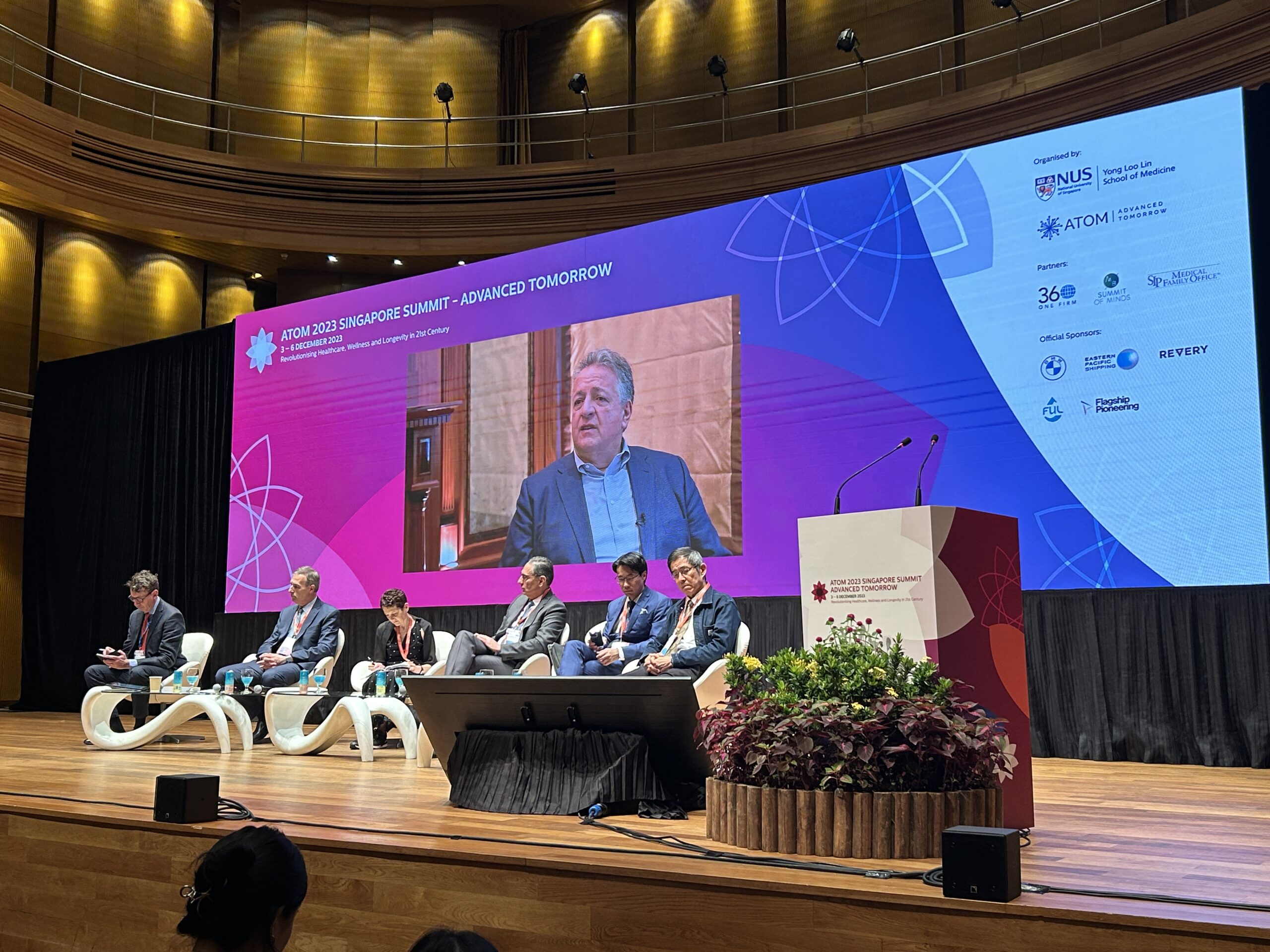Advanced Tomorrow Singapore Summit 2023: Revolutionising Healthcare, Wellness and Longevity in 21st Century - Day 1
Published: 04 Dec 2023

Guest-of-Honour: Deputy Prime Minister Mr Heng Swee Keat
Against the backdrop of geopolitical turbulence, climate change, demographic shifts, technological and biomedical advances, safeguarding global wellness and longevity has become increasingly complex. Organised by Advanced Tomorrow (ATOM) and Yong Loo Lin School of Medicine, National University of Singapore (NUS Medicine), the ATOM Summit gathered some of the world’s best thinkers to come together to ponder over the most critical global issues from 4 to 5 December 2023.
Held at the Yong Siew Toh Conservatory of Music at NUS, Singapore’s Deputy Prime Minister Mr Heng Swee Keat was the Guest-of-Honour of the first ATOM Summit held in Asia. Over the next two days, prominent international figures from the government, business, and academic sectors discuss the way forward to a build a healthier future at the eight plenary sessions anchored and moderated by esteemed experts of their fields, covering critical themes influencing global health with the aim to unpack key challenges as well as develop ideas and suggestions that can help inspire health for all.
Panels on day one explored the macro factors that affect the health of populations and discourse focused on the ways to strengthen the healthcare ecosystem to respond effectively and efficiently to current and future challenges.

Panel session discussion on Life and Geopolitics. Left: Prof Kishore Mahbubani. Right: Dr Armen Sarkissian
The first panel anchored by Professor Kishore Mahbubani, Singapore’s permanent representative to the United Nations, discussed the critical and profound impact of geopolitics on health and healthcare systems with former president of Armenia, Dr Armen Sarkissian and political scientist Professor John Mearsheimer. Former President of Italy, Professor Romano Prodi shared his insights on the topic virtually in a recording.
Panel two moderated by Thierry Malleret, co-founder of the Monthly Barometer and Summit of Minds, built on the key points from panel one, and focused on ways to shore up the resilience of healthcare systems and the importance of improving access as well as delivery, with speakers Vicki Swanton, Professor Nizar Zein, Professor Theodoros Kofidis, Dr Suwit Wibulpolprasert, Professor Vernon Lee, Lord Ara Darzi and Noubar Afeyan.

Panel session discussion on Health System Resilience. Left to right: Thierry Malleret, Dr Nizar Zein, Vicki Swanton, Prof Theodoros Kofidis, Prof Vernon Lee, Dr Suwit Wibulpolprasert

Panel session discussion on the Future of Health and Education. Left to right: Anthony Halpin, Professor Adeeba Kamarulzaman, Miroslav Radman, Prof Dominque Steiler
Members of panel three discussed the best way forward to build the next generation of healthcare providers, innovators and leaders. Moderator Anthony Halpin, Bloomberg News Journalist, Government Editor, Professor Adeeba Kamarulzaman, Professor Miroslav Radman and Professor Dominque Steiler conversed about the various determinants of medical education, desired traits as well as required skills of healthcare professions in the future. The panel ended with recorded messages from Sir Ian Blatchford and Professor Manuel Muniz opining that while scientists and doctors are still regarded to be highly trusted sources of information, the public may not continue to look to academics with the advent of Artificial intelligence.
Joan Hoey, Editor of The Economist’s Democracy Index moderated the discussion for the last panel of the day on ‘Political and Economic Decisions Versus Cost of Health and Wellbeing.’ She was joined by Economic analyst, advisor, and author Pranjal Sharma onstage as well as Founder of non-profit NGO Heartfile, Sania Nishtar, virtually. Panellists gave their views on improving equitable access to healthcare and international cooperation on advancing health, in response to Martin Guzman, Professor Manuel Muniz and Professor Philippe Aghion who opined on the various themes in pre-recorded interviews.
The four panel sessions were accompanied by parallel breakout discussions and a fireside chat that delved more deeply into healthcare access, biomedical innovations and technology, as well as longevity.




